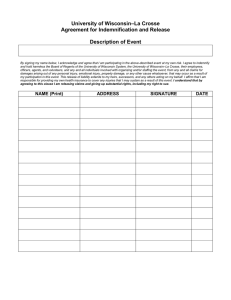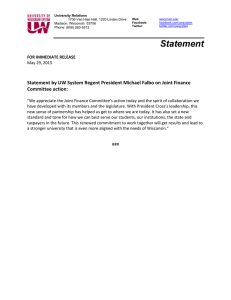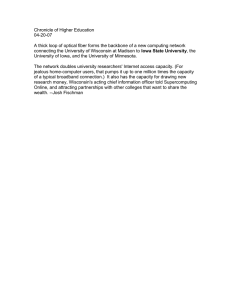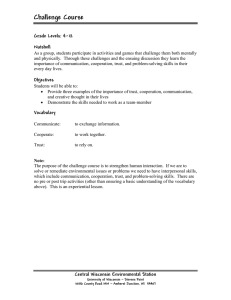Levels of Implementation & SIR Guidelines School-wide Implementation Review (SIR)
advertisement
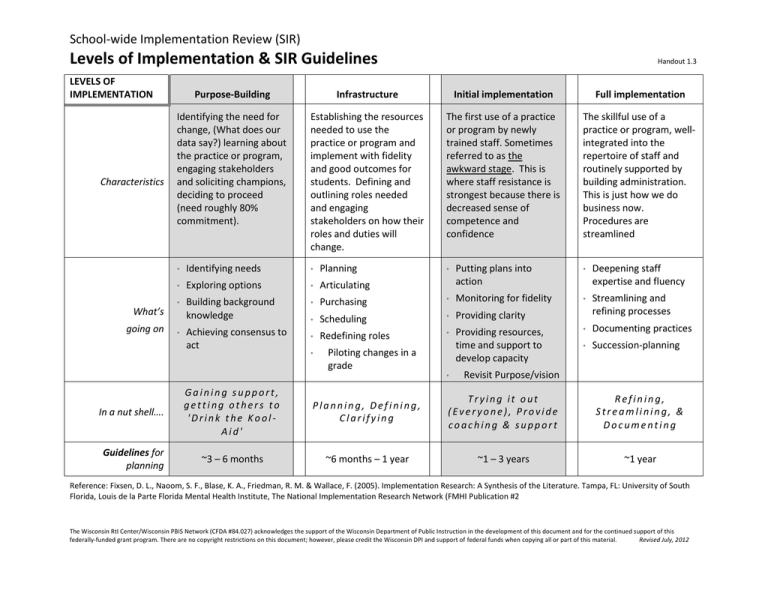
School-wide Implementation Review (SIR) Levels of Implementation & SIR Guidelines LEVELS OF IMPLEMENTATION Characteristics What’s going on Handout 1.3 Purpose-Building Infrastructure Initial implementation Full implementation Identifying the need for change, (What does our data say?) learning about the practice or program, engaging stakeholders and soliciting champions, deciding to proceed (need roughly 80% commitment). Establishing the resources needed to use the practice or program and implement with fidelity and good outcomes for students. Defining and outlining roles needed and engaging stakeholders on how their roles and duties will change. The first use of a practice or program by newly trained staff. Sometimes referred to as the awkward stage. This is where staff resistance is strongest because there is decreased sense of competence and confidence The skillful use of a practice or program, wellintegrated into the repertoire of staff and routinely supported by building administration. This is just how we do business now. Procedures are streamlined • Identifying needs • Planning • Exploring options • Articulating • Purchasing • Monitoring for fidelity • Scheduling • Providing clarity • Redefining roles • • • Building background knowledge Achieving consensus to act • • Piloting changes in a grade • Putting plans into action Providing resources, time and support to develop capacity • • Deepening staff expertise and fluency Streamlining and refining processes • Documenting practices • Succession-planning Revisit Purpose/vision In a nut shell…. Gaining support, getting others to 'Drink the KoolAid' Planning, Defining, Clarifying Trying it out (Everyone), Provide coaching & support Refining, Streamlining, & Documenting Guidelines for planning ~3 – 6 months ~6 months – 1 year ~1 – 3 years ~1 year Reference: Fixsen, D. L., Naoom, S. F., Blase, K. A., Friedman, R. M. & Wallace, F. (2005). Implementation Research: A Synthesis of the Literature. Tampa, FL: University of South Florida, Louis de la Parte Florida Mental Health Institute, The National Implementation Research Network (FMHI Publication #2 The Wisconsin RtI Center/Wisconsin PBIS Network (CFDA #84.027) acknowledges the support of the Wisconsin Department of Public Instruction in the development of this document and for the continued support of this federally-funded grant program. There are no copyright restrictions on this document; however, please credit the Wisconsin DPI and support of federal funds when copying all or part of this material. Revised July, 2012

